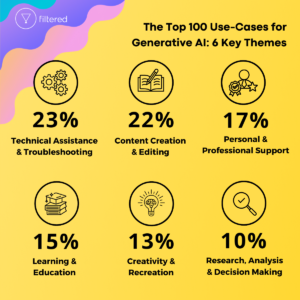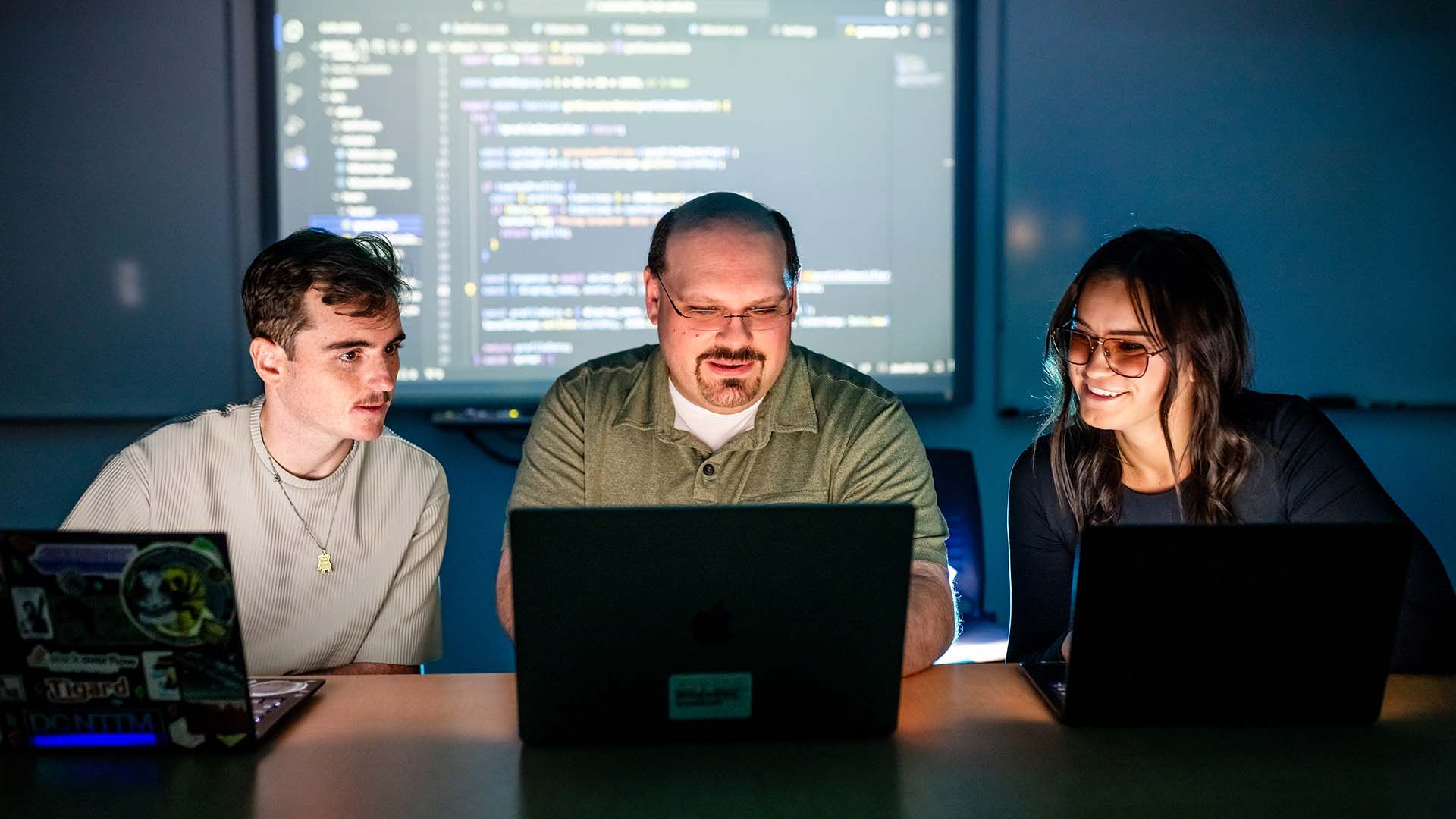How students should — and shouldn’t — use artificial intelligence
Co-directors of MSU Denver’s Generative AI Task Force offer insights on using platforms such as ChatGPT as an academic tool rather than a crutch.

The invention of calculators in the 1970s didn’t eliminate the need for mathematical skills; it shifted the focus to using tools effectively. Similarly, generative artificial intelligence is quickly becoming a standard tool that students need to learn to use while still engaging with the material.
As co-directors of Metropolitan State University of Denver’s Generative AI Task Force, Jeff Loats, Ph.D., and Samuel Jay, Ph.D., provide AI-oriented resources for students and faculty while exploring how AI tools such as ChatGPT can be used responsibly.
“In general, students should use AI as a tool to help them learn, but they need to ensure they can eventually do the work on their own,” Loats said.
A 2023 survey found that half of higher-education students use AI regularly, with 75% of faculty members agreeing that AI proficiency is crucial for future success. Yet as the use and acceptance of AI proliferates in academia and business, many students would like clarification regarding how to use it appropriately.
MSU Denver Journalism student Shania Rea has observed firsthand how AI is transforming education and work. Rea, who is set to graduate in May, noted that MSU Denver faculty members generally have a “progressive” attitude about AI.
“It’s about finding that balance,” Rea said, “and using AI as a tool to complement education, not replace it.”
Rea said while her MSU Denver instructors have helped her better optimize AI for education and work, the rules vary from class to class. “Different professors have different rules about using AI. … I just wish there were clearer guidelines across the board,” she said.
While MSU Denver students will have to follow the AI guidelines set by instructors for their classes, Loats, Jay and Rea offered some tips on how students should and shouldn’t be using AI to improve their educational experiences and avoid the trappings of the fledgling technology.

Editing and proofing: yes
Loats and Jay concur that using generative AI for editing, clarity, coherence and accuracy is one of the best and most popular uses of the technology. While neither endorses using AI to write a first draft, AI might flag typos, enhance the flow of content or neutralize personal bias in subsequent revisions of an assignment.
“AI could be really helpful in terms of editing, revising and cleaning up writing, but a human element is still needed to ensure quality and accuracy,” Jay said.
Scheduling: yes
Rea said AI scheduling tools such as Google Calendar, Microsoft Outlook and Calendly can be helpful for managing multiple appointments and deadlines. She noted that such tools organize her time efficiently and help avoid conflicts, making it easier to balance academic and personal responsibilities.
Jay concurred that using such tools to assist with scheduling is “absolutely appropriate.”
Summarizing and paraphrasing information: Seek guidance
According to a 2023 survey from education and financial consultancy Tyton Partners, 34% of students who use AI daily rely on it to summarize or paraphrase text.
Jay said that while using AI to summarize content can be efficient for boiling down research abstracts, incorporating AI-generated summaries in formal work is unethical. He emphasized the importance of getting clear guidelines from instructors and advised students to seek clarification on what’s allowed and what’s not.
Understanding difficult concepts: Use caution
Loats and Jay agree that it’s appropriate to prompt AI to help students gain clarity with difficult concepts but with caution. While AI can be helpful, students may not recognize when AI has made mistakes, oversimplified information or introduced biases.
Experts often catch such issues, but learners are the primary users for complex topics. This makes AI a double-edged tool — powerful yet potentially misleading if not used carefully.
The survey said 29% of daily AI users rely on the technology for this purpose.
Brainstorming or creating content ideas: Use caution
Though many people find AI useful for generating ideas, Loats worries that originality and quality might suffer from relying on it during the early stages of a creative process.
Jay suggests using AI as a resource rather than to generate all ideas.
“There are a lot of similarities in how students use it and how they talk to their graduate advisors,” Jay said. “It’s good for bouncing ideas and getting some clarity on some things.”
While both advise against using AI to create a first draft, they agreed it’s perfectly acceptable to prompt AI to suggest an outline.
Answering homework questions: probably not
While the survey shows 31% of daily AI users rely on platforms such as ChatGPT for homework help, Loats generally advises against it.
He emphasizes the importance of engaging with the learning process and encourages students to use critical thinking to solve problems independently. AI should be used to understand solutions, not as a shortcut for completing assignments.
Creating résumés, cover letters and scholarship forms: probably not
According to the survey, 31% of students use generative AI to create résumés and cover letters and to help fill out scholarship forms.
Loats and Jay have mixed views on this practice: While AI can improve readability, it can’t capture the genuine motivation and unique perspective of an applicant required for engaging cover letters and scholarship applications.
“ChatGPT is not going to produce anything better than what you could do,” Loats said.
Loats and Jay encourage students and faculty members to navigate this new frontier with caution, ensuring that AI enhances rather than eclipses the educational experience.
From Rea’s perspective, AI is a powerful tool that will expand her educational and career horizons while allowing her to develop new skills.
“Embracing AI in our studies is exciting because it’s a step toward the future, but it also challenges us to stay committed to truly mastering our subjects,” she said.







